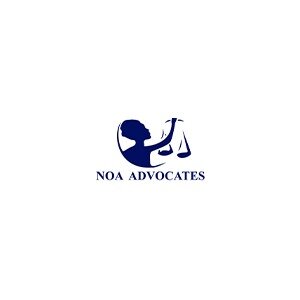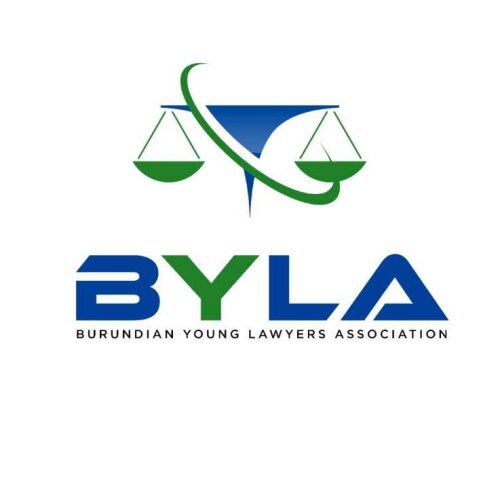Best ESG Advisory & Compliance Lawyers in Burundi
Share your needs with us, get contacted by law firms.
Free. Takes 2 min.
Or refine your search by selecting a city:
List of the best lawyers in Burundi
About ESG Advisory & Compliance Law in Burundi
Environmental, Social and Governance (ESG) Advisory and Compliance law in Burundi refers to the set of legal requirements, voluntary standards and best practices that businesses and organizations must follow in relation to their environmental impact, social responsibility and corporate governance. As global awareness of ESG issues grows and international investors increasingly factor ESG criteria into their decisions, companies operating in Burundi are under greater scrutiny to demonstrate responsible and ethical business practices. ESG Advisory & Compliance involves helping organizations understand, implement and report on regulations and standards that relate to environmental protection, social welfare, labor rights, human rights, anti-corruption and proper governance practices.
Why You May Need a Lawyer
Legal assistance in ESG Advisory & Compliance can be crucial for both local and international businesses in Burundi. Some of the common reasons why you may require help from a lawyer in this field include:
- Understanding local ESG regulations and requirements for your industry
- Drafting and reviewing company policies to ensure ESG compliance
- Navigating environmental impact assessment procedures and government approvals
- Managing social risks in areas such as labor relations, community engagement and land use
- Responding to government investigations or audits related to environmental or social practices
- Ensuring compliance with anti-corruption and anti-money laundering regulations
- Reporting ESG information and disclosing risks to investors in line with international standards
- Managing disputes or complaints related to environmental or labor grievances
- Integrating ESG considerations into mergers, acquisitions or investments
- Keeping up to date with new laws and international ESG frameworks that affect operations in Burundi
Local Laws Overview
ESG-related laws and regulations in Burundi are evolving as the country adapts to rising international standards. Environmental protections are mostly governed by the Environmental Code of Burundi, which requires environmental impact assessments for certain projects and sets rules for resource management. Social compliance is influenced by labor legislation, such as the Labor Code of Burundi, which includes provisions on workers’ rights, health, and safety. Anti-corruption and corporate governance rules are guided by the Penal Code, the Law on Public Procurement and sectoral codes for banking, mining and other regulated industries. Burundi is also a party to many international conventions relating to environmental protection, human rights and corporate conduct which may affect compliance obligations, especially for companies seeking cross-border investment or trade.
In recent years, there is increased encouragement for companies to follow international ESG frameworks such as the United Nations Sustainable Development Goals (SDGs), the International Finance Corporation Performance Standards, and the Equator Principles when structuring investments and reporting practices.
Frequently Asked Questions
What does ESG mean, and why is it important in Burundi?
ESG stands for Environmental, Social, and Governance. It refers to the ways businesses manage their impact on the environment and society and uphold ethical management structures. In Burundi, ESG compliance is important for legal conformity, attracting investment and ensuring sustainable development.
Do ESG laws apply to all businesses in Burundi?
Certain environmental and labor laws apply to most businesses, especially those in sectors with higher social or environmental risks. However, the scope of ESG obligations can vary based on company size, industry and whether the business seeks international financing or partnerships.
What are the core environmental regulations I need to be aware of?
Key requirements include conducting environmental impact assessments for major projects, complying with pollution control standards, responsibly managing waste and securing necessary permits from the Ministry of Environment.
How does Burundi regulate workplace and social responsibility?
The Labor Code and relevant ministerial decrees outline obligations regarding fair wages, working conditions, health and safety, prevention of discrimination and child labor, and social security contributions. Some industries have specific additional regulations.
Are there anti-corruption or business ethics requirements for companies in Burundi?
Yes, companies must adhere to anti-corruption measures in the Penal Code and sectoral regulations. This includes rules on transparency, conflicts of interest and bribery prevention.
How can a company demonstrate compliance with ESG standards?
By maintaining proper policies, conducting regular training, keeping records, obtaining third-party certifications where available, and transparently disclosing ESG efforts in annual or sustainability reports.
What is an environmental impact assessment, and when is it required?
An environmental impact assessment (EIA) is a process to evaluate the potential effects of a project on the environment. It is required for many types of construction, mining, manufacturing and infrastructure projects before licenses or permits are granted.
Are international ESG standards recognized in Burundi?
While not always legally binding, international standards such as the SDGs, IFC Performance Standards, and Equator Principles are often recognized, especially by foreign investors and development partners.
What penalties can businesses face for ESG non-compliance?
Penalties can include warnings, fines, suspension of business licenses, injunctions to halt activities, or even criminal charges in serious cases, such as environmental pollution or gross labor violations.
How do I find a qualified ESG Advisory & Compliance lawyer in Burundi?
Seek lawyers or law firms with experience in corporate, environmental, labor and public law, and who are familiar with both Burundian and international ESG issues. Protection of your organization’s interests requires up-to-date and specialized legal knowledge.
Additional Resources
For further assistance, the following resources and organizations can provide valuable information or support regarding ESG Advisory & Compliance in Burundi:
- Bureau Burundais des Normes et du Contrôle de Qualité (BBN)
- Ministry of Environment, Agriculture and Livestock
- National Commission for the Protection of the Environment (CNPE)
- Ministry of Public Service, Labor and Employment
- Chamber of Commerce and Industry of Burundi (CCIB)
- Local offices of international organizations such as the United Nations and International Finance Corporation
- National Human Rights Commission of Burundi
- Professional associations of lawyers and legal advisers in Burundi
Next Steps
If you believe your business or organization may be subject to ESG obligations or you are facing compliance challenges in Burundi, it is important to take timely action:
- Assess your current ESG policies and practices to determine potential legal exposure
- Document your business’s efforts to comply with national and international ESG standards
- Identify areas where further training or policy updates may be needed
- Consult an experienced ESG Advisory & Compliance lawyer with knowledge of Burundian law
- Prepare necessary documentation or disclosures for authorities, partners or investors
- Stay informed about changes in local and international ESG requirements
Acting early and seeking expert advice can help your organization avoid legal risks, promote positive stakeholder relationships and enhance your reputation in Burundi and beyond.
Lawzana helps you find the best lawyers and law firms in Burundi through a curated and pre-screened list of qualified legal professionals. Our platform offers rankings and detailed profiles of attorneys and law firms, allowing you to compare based on practice areas, including ESG Advisory & Compliance, experience, and client feedback.
Each profile includes a description of the firm's areas of practice, client reviews, team members and partners, year of establishment, spoken languages, office locations, contact information, social media presence, and any published articles or resources. Most firms on our platform speak English and are experienced in both local and international legal matters.
Get a quote from top-rated law firms in Burundi — quickly, securely, and without unnecessary hassle.
Disclaimer:
The information provided on this page is for general informational purposes only and does not constitute legal advice. While we strive to ensure the accuracy and relevance of the content, legal information may change over time, and interpretations of the law can vary. You should always consult with a qualified legal professional for advice specific to your situation.
We disclaim all liability for actions taken or not taken based on the content of this page. If you believe any information is incorrect or outdated, please contact us, and we will review and update it where appropriate.
Browse esg advisory & compliance law firms by city in Burundi
Refine your search by selecting a city.











